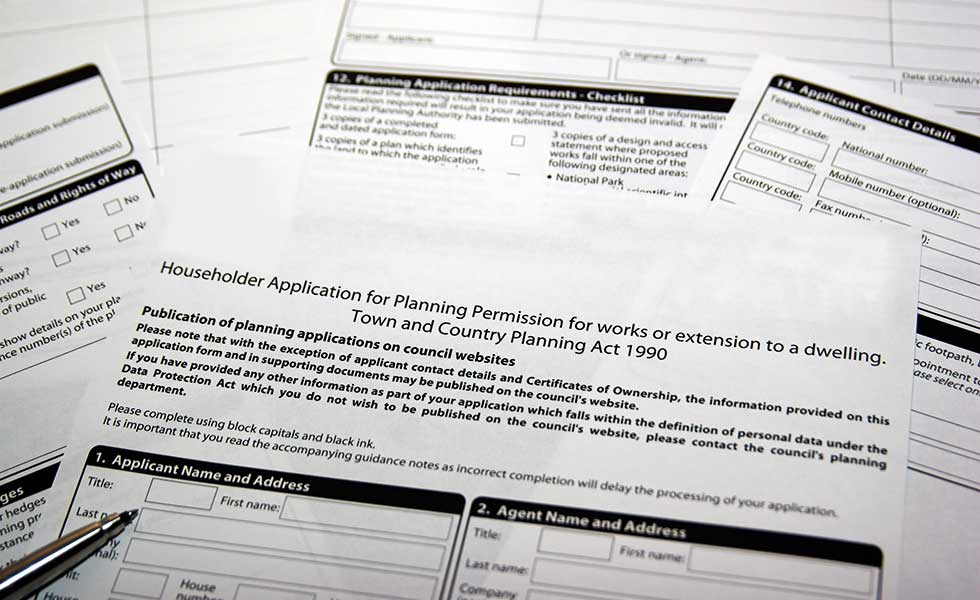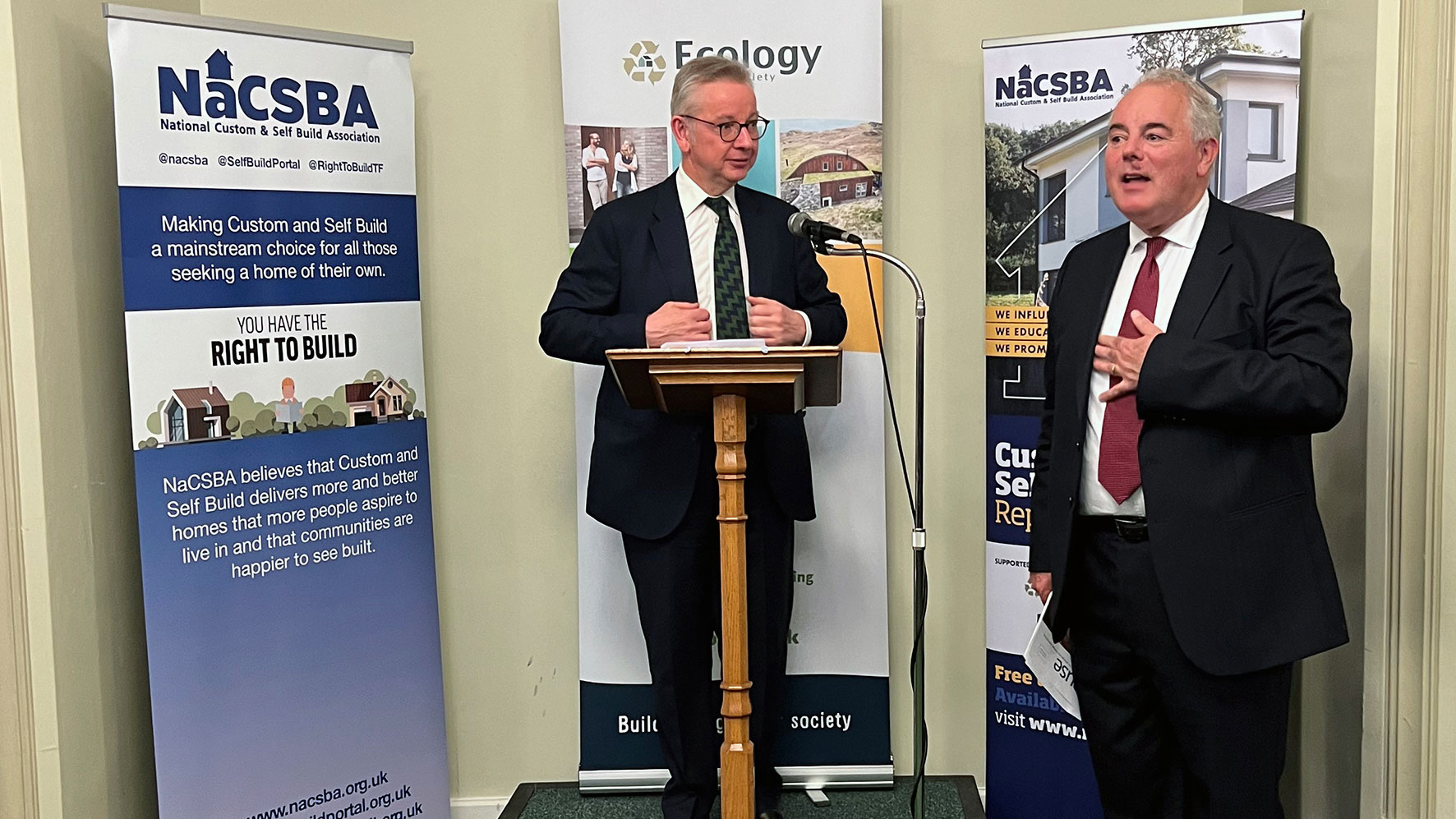Calls for planning system overhaul as applications drop to record low
Calls to address "omnishambles" planning system grow as applications and approvals reach record lows across Britain

Bring your dream home to life with expert advice, how to guides and design inspiration. Sign up for our newsletter and get two free tickets to a Homebuilding & Renovating Show near you.
You are now subscribed
Your newsletter sign-up was successful
Planning applications for new build projects, including self build applications, in England have hit an all-time low, according to the latest government statistics.
The figures, released by the Department for Levelling Up, Housing and Communities, show that the number of applications submitted to local authorities for self build homes or renovating existing ones in 2022 was the lowest it has been since at least 2006, the earliest year for which the government provides data.
There is a similar situation in Scotland where there has been a 46% drop in the number of applications for housing developments for 2022/23 compared to 2019/20.
Here we look at why planning permission applications are so low and what is being done to improve this situation.
Planning reforms largely to blame
Between October to December 2022, district-level planning authorities in England received over 93,000 applications for planning permission, a 13% reduction on the same period a year previous.
A widely held belief amongst experts is that recent planning reforms made to the planning system by successive Conservative governments have caused this decline in planning permissions.
The Conservatives had initially pledged to build 300,000 new homes annually after being elected in 2019, which led local authorities to set ambitious housing plans and provide incentives for housebuilders.
Bring your dream home to life with expert advice, how to guides and design inspiration. Sign up for our newsletter and get two free tickets to a Homebuilding & Renovating Show near you.
But Department for Levelling Up, Housing and Communities Secretary (DLUHC) Michael Gove altered the planning rules to make it easier for local authorities to avoid designating sites for development, such as by eliminating the requirement to demonstrate they have sufficient land for five years of new construction.
Since this government uncertainty, it has been revealed in a report by the Home Builders Federation (HBF) that 55 local authorities have withdrawn or altered their housing delivery plans.
Stewart Baseley, Executive Chairman of HBF has called on the government to do more for self builders, after he claimed: “The collapse in planning permissions is a direct result of the Government’s increasingly anti-development policies and an overall negative stance on home building."

In Scotland, the government figures indicate a notable decline in applications for major housing developments during the period 2022/23 when compared to 2019/20, showing a significant 46% drop.
HOMES for Scotland (HFS) expressed their astonishment at these statistics, describing them as "shocking."
There has also been a decline of 12% in local housing development applications, and processing times have increased by almost 40% since 2019/20, now taking an average of 17.2 weeks. This situation is particularly affecting small and medium-sized housebuilders as well as rural housing development, as noted by HFS.
Liz Hamilton, HFS's director of planning, said: “In the context of Scotland’s housing crisis and the shortfall of 114,000 new homes that has accumulated since 2008, these shocking figures illustrate how much worse the situation is becoming. Scotland simply cannot afford, either socially or economically, to let this continue but issues with the new National Planning Framework 4 point to such an outcome.
“The Scottish Government must get Scotland’s planning system sorted if we are to ensure this and future generations are able to access safe and sustainable homes that meet their needs and they can afford. This requires significant investment in and resourcing of planning services."
20% of planning departments didn't approve self builds
According to the government's latest data, 20% of local planning authorities in England did not approve any self build or custom build housing projects in the year leading up to October 2022.
The figures also showed an increase in the numbers of planning permissions refused as there was a 23% decrease in permissions granted for custom and self build plots, and an 11% reduction in planning permissions for self build homes.
Dorian Payne, director of property developers Castell Group, criticised the planning system, stating that obtaining planning permission was a matter of luck and playing a role in the growing housing deficit. Payne added: "The planning system is part of the problem not, as it should be, the solution.”
In addition to this, the number of individuals and groups registering for the Right to Build programme in England hit an all-time low in 2022, with a 34% decrease in individual registrations and a 37% decrease in group registrations.
The programme was created to help local authorities determine the demand for self-build and custom housebuilding and ensure sufficient land availability. However, according to Michael Holmes, Chair of the National Custom and Self Build Association, local authorities are not meeting the demand and are even removing individuals from the register.
Holmes claims this is due to "some authorities imposing charges or local connection tests", and others simply "dropping individuals off the register".
Attempts to address planning application issues
The HBF has estimated that England’s new housing supply could drop below 120,000 later this decade, the lowest level in more than 80 years. This has prompted the government to introduce measures to incentivise planning applications and streamline the planning process.
The Spring Budget has aimed to address the issue of nutrient neutrality, which the government considers a major obstacle to meeting their target of building 300,000 homes annually, as it has hindered housing delivery in 74 local planning authorities.
The Budget report highlights this challenge and introduces incentives for landowners, including consultation on taxation of ecological mitigation schemes to encourage their implementation.
Natural England has also launched a nutrient mitigation scheme, allowing housebuilders to purchase "nutrient credits" to meet their obligations and obtain planning permission. The scheme is supported by £30 million from Defra and the Department for Levelling Up and Housing Committee (DLUHC).

Additionally, as part of the latest updates to the Levelling-Up and Regeneration Bill, a review of national development management policies has been announced to assess the sustainability of these measures in response to the latest government figures.
Baroness Scott of Bybrook introduced a new clause in the Levelling-Up Bill last week for reassessing the demand for self build and custom building:
"(a) the demand for self-build and custom housebuilding in an authority's area in respect of a base period is the aggregate of—
(i) the demand for self-build in the authority's area in the base period; and
(ii) any demand for self-build that arose in the authority’s area which expired during the base period in question, and
(aa) the demand for self-build and custom housebuilding arising in an authority’s area in a base period is evidenced by the number of entries added during that period to the register under section 1 kept by the authority;"
This amendment allows the Secretary of State to identify specific categories of planning permissions that will be counted as valid for the purpose of meeting the demand for self builds, which will aim to enable local planning authorities to better fulfil their obligations and eradicate the chance for wrongfully removing people from the Right to Build register.

News Editor Joseph has previously written for Today’s Media and Chambers & Partners, focusing on news for conveyancers and industry professionals. Joseph has just started his own self build project, building his own home on his family’s farm with planning permission for a timber frame, three-bedroom house in a one-acre field. The foundation work has already begun and he hopes to have the home built in the next year. Prior to this he renovated his family's home as well as doing several DIY projects, including installing a shower, building sheds, and livestock fences and shelters for the farm’s animals. Outside of homebuilding, Joseph loves rugby and has written for Rugby World, the world’s largest rugby magazine.
